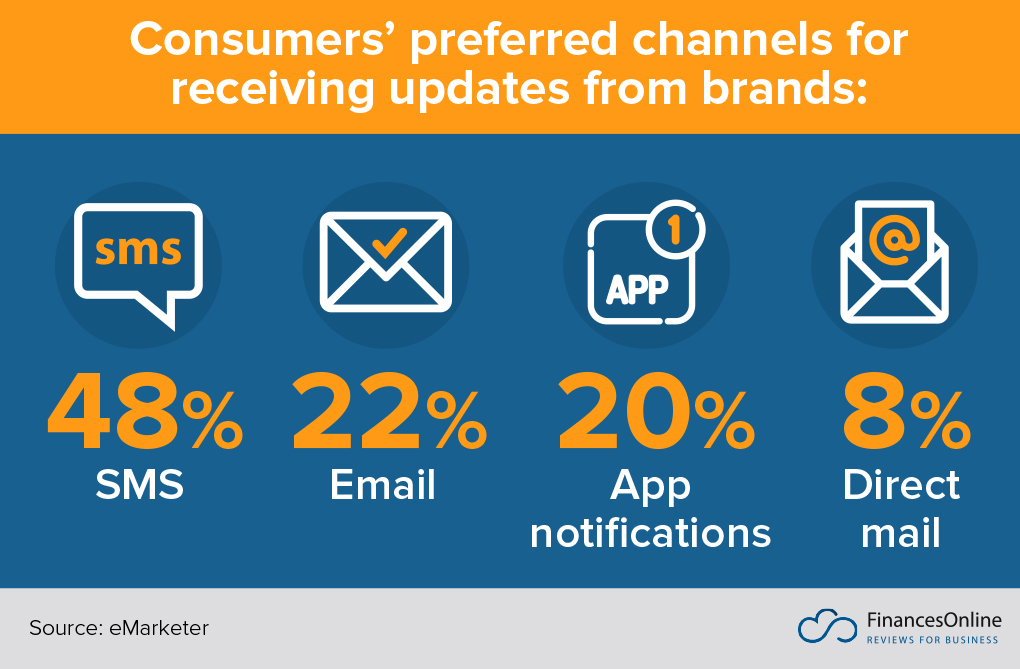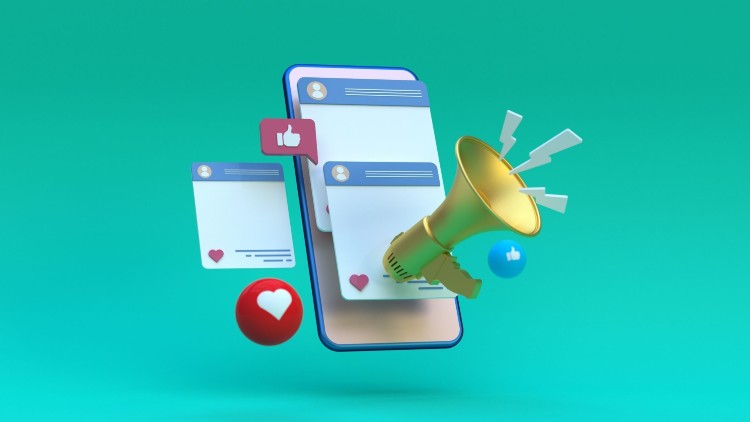In this fast-paced digital age, businesses strive to stay informed about the latest marketing technologies. While keeping up with trends is helpful, it’s important to know that advanced tools don’t necessarily guarantee great results. Established methods like SMS marketing can be more effective than recently developed channels in reaching the right audience.
For instance, with social media, you rely on algorithms to hopefully increase the reach of your campaigns. With SMS, you don’t have to wait for your target audience to come across your content since you can send it directly to them.
Below, we’ll outline the best practices for planning and executing a successful SMS marketing campaign. However, let’s first discuss how SMS marketing works and how your business can benefit.

SMS Marketing 101
SMS is an abbreviation for short message service, which is a way of sending messages limited to 160 characters across different devices. While it’s the oldest text messaging technology, it remains the most popular and frequently used.
Accordingly, SMA marketing uses texting to distribute marketing material such as sales promotions or other branded content to customers. It’s a form of permission-based marketing, which means your customers need to subscribe to receive messages.
How Does Permission-Based Marketing Work?
In permission-based marketing, audiences explicitly give consent to be marketed to. They grant their permission by filling out a subscription form or texting a code or keyword to a mobile number. Then, they’re added to a list of contacts who’ll receive SMS alerts from the company.
If you’re wondering if SMS marketing is legal, yes, it is—as long as you follow your local SMS advertising laws. In the U.S., there are two laws you should abide by Telephone Consumer Protection Act (TCPA) of 1991 and the Controlling the Assault of Non-Solicited Pornography and Marketing Act (CAN-SPAM) of 2003.
Interruption marketing works in the exact opposite way. As the name suggests, marketers strive to “interrupt” as many people as possible to deliver a promotional message or sales offering to potential customers.
Many consumers view unsolicited ads negatively since they can be disruptive and spammy. On the other hand, the recipients of an SMS marketing campaign have voluntarily opted in, so they’re generally more likely to respond favorably.
SMS marketing allows you to promote your business only to people who have already shown an interest in your products or services instead of spending your resources on an unwilling audience who may not even be part of your target demographic.

The Effectiveness of SMS Marketing
SMS is one of the most effective marketing platforms available for a variety of reasons:
- Reaches almost everyone
With 83.37% of adults worldwide owning a smartphone in 2022, SMS is a cheap and easy way to reach clients immediately. You can even direct them to your social media pages or website by adding a link to the text message.
- Works well with email marketing
While email and SMS marketing strategies are quite similar, they deliver optimal results when used together in your company’s marketing strategy mix. SMS is perfect for short messages like business updates or discount promos. Email, on the other hand, is more suitable for long-form content.
- Has excellent engagement rates
With 90% of text messages being opened within three minutes of delivery, SMS engagement rates are significantly higher than emails. As a result, SMS is extremely useful for sending messages that require immediate response, such as time-sensitive product deals.
- Helps engage non-tech savvy audiences
If your company is looking to expand to places where data is costly and high-speed internet connection is scarce, SMS is a far better way to share information. If you’re targeting older demographics, SMS is perfect as they’re more likely to use texting as a primary mode of communication than online messaging apps.
- Targets the right people
As stated previously, you can only deliver text messages to clients who have agreed to subscribe. It narrows down the scope of your marketing campaign and allows you to reach customers who need your products or services and intend to patronize your business.
- Monitors easily
With SMS marketing, it’s quite simple to determine which messages are effective and aren’t based on the number of responses you’re getting. It can help you optimize your SMS campaigns to generate better results.
The Advantages of SMS Marketing
SMS marketing has numerous advantages, varying depending on the industry your business belongs to and how you use it.
Here are some of the most common benefits SMS marketing can provide:
- Boosts foot traffic to the establishment
- Expands your customer base and drives sales
- Rewards existing consumers and attracts prospects
- Helps business owners build a closer relationship with customers
- Allows real-time communication at low costs
Benefits for customers:
- Easily forward promotional texts to friends and family
- Keep up to date on the company’s business operations
- Feel valued and appreciated
The Best Businesses to Employ SMS Marketing
Whatever type of business you have, SMS is a great channel to add to your marketing efforts. However, SMS marketing campaigns are especially beneficial for enterprises in certain industries.
- Online stores: SMS is a terrific tool for e-commerce shops. They can promote products or send order and shipping confirmations. Because text messages are delivered instantly, buyers will stay informed of any unexpected issues, and transactions can go smoothly.
- Event venues: For owners of venue rentals, keeping schedules on track is very important to avoid huge mishaps like double bookings or same-day cancellations. Hence, communicating with clients via text is a convenient way to ensure that all parties are on the same page.
- Travel and leisure: Travel agencies rely on SMS since their clients require real-time information. These include flight or travel schedules, seat changes, delays, and weather alerts. With SMS, companies can notify their clients of precisely what they need to know without worrying about whether they’ll see the message on time.
- Service-oriented organizations: For businesses that offer services instead products, sending SMS reminders is a foolproof way to reduce missed appointments. This can help them save resources they would have squandered on no-shows and late arrivals.

Using SMS for Marketing Campaigns and Business Transactions
SMS marketing allows you to deliver two types of content: campaigns and transactional messages.
Campaign: This type of SMS marketing message is the traditional blast or bulk text delivered to a large number of recipients. They’re typically used for promoting discounts, coupons, and special product offers. They may also communicate basic information like event details, quick updates, and public service announcements.
Transactional: Unlike marketing campaigns, transactional messages are more personal, meaning it’s intended for just one recipient. These messages contain timely and relevant details that provide value for specific individuals. Some common examples include an appointment reminder, delivery notification, order confirmation, and response to a business inquiry.
Essential Text Messages to Send to Your Customers
You can utilize SMS marketing in a variety of ways. It’s scalable, versatile, and compatible with other digital marketing strategies.
Here are some content themes you can use to boost customer engagement, drive sales, and make the most of your SMS marketing campaigns.
- Limited-time offers
Promos and coupons are amazing at urging people to visit your store, website, or social media page. Try doing a limited-time deal, so your customers will be motivated to act on your campaign immediately.
Text messaging is ideal for communicating product offers, especially if you want to inform your clientele as soon as possible. You won’t have to worry about your recipients not getting your message on time.
Moreover, text blasts of short-term promos are effective throughout a company’s sale period during the holidays or specific seasons. Customers will be more inclined to purchase if the prices are reduced.
Mixing SMS with email marketing is an excellent way to ensure your campaign won’t go unnoticed. Inform your regular customers and SMS subscribers about price reductions or special offers. You can also include a link leading to an online catalog on your website in your text message, so your customers can start browsing your selection before they even reach your store.
- Updates on product orders
If there’s an update on a customer’s order status, you’ll want them to be notified regarding any changes or emerging issues as soon as possible. Text messages are perfect for keeping them updated at all times.
Not only does timely communication increase trust, but it also improves customer satisfaction, which helps build customer loyalty over time. Additionally, businesses that communicate with their customers often get good reviews online. Post-purchase customer service is also convenient to do via text messaging.
- Important information about upcoming events
Event planning and management are very taxing. Plus, the more attendees you anticipate, the more difficult it is to keep all of them posted on key details. SMS can help you notify them of real-time schedule updates, program changes, and other important information.
Following up via text is especially helpful if you sent the invitations through email. Your guests may already know the general information, but people don’t usually check their emails daily, so they may miss updates if you don’t follow up on SMS.
- Reminders for appointments
If your company depends heavily on planned appointment times, missed appointments and late arrivals can take a toll on your profits. They mess up schedules and waste time and money. Plus, you may have already rejected other bookings to make space for the slots they have taken.
To avoid the frustration of dealing with clients who forget their commitments, be sure to send them reminders the day before and on the actual date of the session. This way, you can make sure they’ll arrive on time, or you can adjust your schedule early if they cancel.

SMS Marketing Best Practices
Just like with any other marketing plan, there are rules of thumb you must follow to increase your SMS marketing campaign’s likelihood of success. Here are several practical tips to consider:
- Confirm that your contacts have agreed to receive SMS messages
Remember that your company’s goal is to tell customers about the information they want to know, not to bother them with unsolicited ads and spam messages.
Make sure your list of contacts is accurate and updated regularly. Also, send a welcome greeting to every new subscriber to remind them that they have opted in for SMS alerts. This way, they won’t be surprised or overwhelmed when you start delivering branded content.
Furthermore, ensuring that they have permitted you to contact them shows that you care about how your customers feel and prioritize them over promoting your business.
- Use appropriate timing
If you want to boost engagement, timing is everything. For instance, if you send a text message about a special deal at night, they might have already forgotten about it in the morning.
Instead, schedule your communication so recipients are notified when it’s convenient for them to act on the information in your text immediately. Weekdays and national holidays are included, depending on when your shop is open.
- Remember to include your company’s name
Because your provider typically delivers texts in bulk using a short code, your recipients may be unable to identify who sent the message. You can easily address it by adding your company name at the end of the message so they know where to go if they decide to do business with you after reading your promo.
- Incorporate SMS within your whole digital marketing strategy.
SMS goes hand in hand with other digital marketing channels. Also, different age groups have their preferred means of communication, so it’s important to tap into a range of platforms to expand your audience.
SMS effectively works when combined with social media and email marketing. Texting is useful, but you may miss many opportunities if you focus solely on it. Be inventive in how you sell your company and include call-to-actions for other platforms you use whenever possible.
- Build a concise program
Before you encourage customers to join your subscription, explain what it entails, so they know what to expect. Your program and its goal should be transparent, and you should inform your contacts of what they’ll receive in the future.
It doesn’t have to be complicated. Write one or two sentences on the cover page or at the top of the sign-up form. You can also include it in the autoresponder your customers receive after texting a code to register or submitting a web form.
- Keep an eye on the frequency of your campaigns
Don’t message your customers more than a reasonable frequency. Over-texting can be annoying and may push your subscribers to block your mobile number in the worst-case scenario. However, not sending SMS consistently enough is also a problem. You may be extra cautious of spamming customers that you’re missing out on some opportunities.
When you send too few messages, your audience may forget about you and wonder why they signed up for your campaign in the first place. By the time they get your message, it may potentially be unwelcome.
While it’s best practice to send about two to four text messages monthly, your company may send multiple texts weekly if it suits your industry. For example, a church that uses SMS marketing may send weekly texts about service schedules.
The most crucial thing is to tell your subscribers how frequently you’ll message them and stick to what you promised. Make it simple by mentioning the messaging frequency in your auto-response text, so people are notified when they subscribe.
- Make an exit available
You may think that you’ve created the best SMS campaign out there, but the reality is that not everyone will want to be in the loop. Your SMS program should allow your audience to opt-out at any moment to ensure everyone is happy with your brand.
All bulk texting services handle specific “opt-out keywords” that should unsubscribe customers instantly. STOP, UNSUBSCRIBE, STOP, END, and CANCEL are typical examples.
These opt-out instructions must be included in every auto-response a subscriber receives. While sending the directions with every SMS blast is unnecessary, it’s a good idea to have a short reminder at the end of your campaigns now and then.
- Concentrate on bringing extra value
One of the essential factors in a successful SMS marketing plan is exclusivity. It would be best to let your subscribers know they are part of an exclusive group, and each promo is made especially for them.
Instead of bombarding your customers with the same generic advertisement weekly, concentrate on special deals available only to your subscribers. Discounts, key announcements, event alerts, and personal messages like birthday greetings or anniversaries of their subscription are all crucial texts to send to your customers. Without added value, they’re more likely to unsubscribe.
Something to Ponder On
SMS has become one of the most efficient and dependable channels businesses can use to communicate with their target audience. Unlike online platforms, text messaging offers a more intimate and direct approach.
While SMS marketing strategies are tailored to the distinct objectives of each organization, the best practices discussed above apply to different industries. If you follow these time-tested principles, you can start developing an effective SMS marketing plan for your company.
About the Author
Alex Alabiso built Semaphore‘s tech backbone and keeps it running smoothly. In his spare time, he grows hydroponic tomatoes and plays video games.


